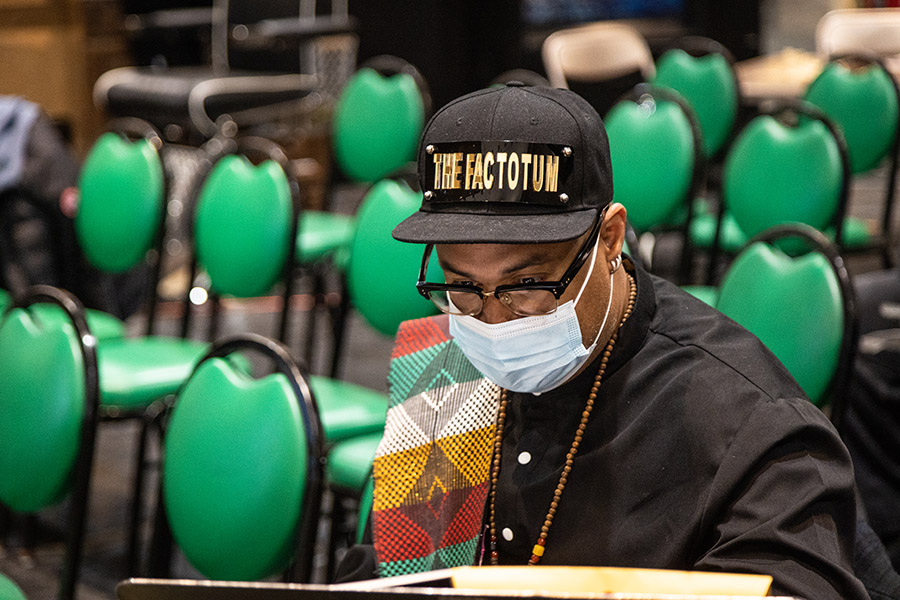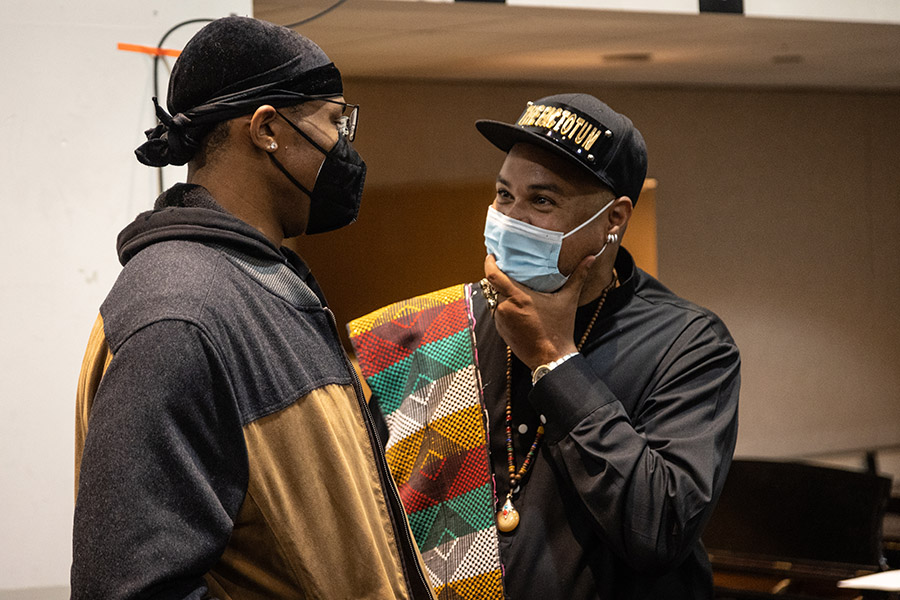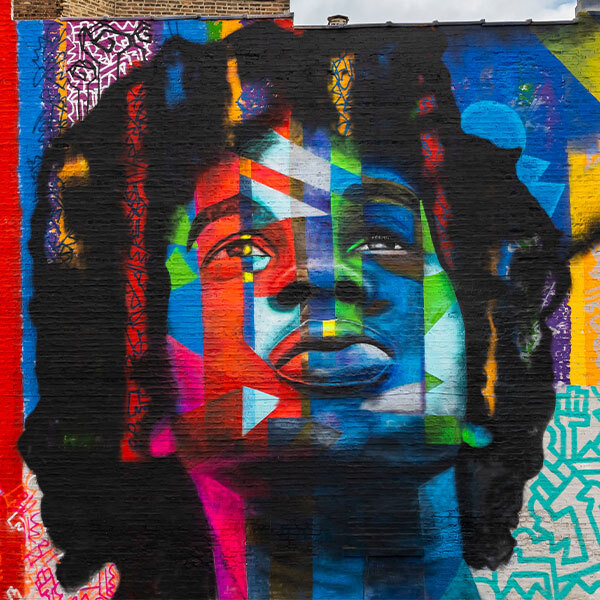January 20, 2023
Q&A with Rajendra Ramoon Maharaj
As opening night of the world premiere of The Factotum approaches, we had a chat with co-book writer, director, and dramaturg Rajendra Ramoon Maharaj. In this interview, read about his experience working with co-creators Will Liverman and DJ King Rico, the importance of connecting art and activism, his dreams for the opera’s legacy, and more!
Tell us about your collaboration with Will Liverman and DJ King Rico.
Will and King are kind, deeply spiritual, visionary geniuses. Through the journey of creating The Factotum, we have forged a very strong bond both personally and professionally. We share similar artistic and creative values that include honoring our ancestors, elevating the African American experience and reality in our work and craft in opera, and knowing that there are generations yet unborn that will benefit from this moment in time and space. We all recognize that we stand on the shoulders of our ancestors who — through their talents, hard work, and sacrifices — have prepared us for this moment.
What are you most looking forward to as rehearsals begin and The Factotum comes to life on stage?
I'm most excited to be in a room with BIPOC [Black, Indigenous, and people of color] artists who are passionate about new work and have something to say about the world. I'm extremely proud of this diverse company as well as this incredibly gifted BIPOC design team who share a common vision to use this moment as part of a bigger movement to ignite change in our industry.

Rajendra Ramoon Maharaj, The Factotum's Co-Book Writer, Director, and Dramaturg
In what ways has the show evolved since you joined the creative team?
Oh my... There have been many changes, particularly with the structure of the story and introducing the character of Cece, who is really the center figure of the opera. We worked really hard on illuminating the complexities of the family dynamics in the opera. Audiences, particularly BIPOC audience members, will instinctively recognize this dynamic score as well as the South Side Chicago rhythm and sway of the barber/beauty shop, including all the souls that occupy it as they reflect our shared history, humanity, and heartbeat. We spent a lot of time cultivating the themes of Black joy, romantic relationships, coping with the loss of a loved one, standing up to police brutality, and the fight to pursue the American Dream against the complex backdrop of legacy. The Factotum urges us to treat our wounds and dreams gently, and give ourselves and the ones we love most a second chance.
You often emphasize the connections between art and activism in your work. How are you doing so as you work on this project?
It sits at the very heart of my work as a storyteller, and particularly with The Factotum, which is a historic moment in the world of contemporary opera. I've always seen the empty space of the stage as an opportunity for social change and civilized discourse to occur. It remains one of the few sacred places left in a far too noisy, often divided world where people of different backgrounds, cultures, gender identities, and communities can still sit in the quiet dark together, think a while, laugh, and be awakened. It is a gathering place — like a barbershop — where one can gain a richer connection to the fragility of beauty and pain that exists in all art and life! The truth is Black people have ignored opera for far too long because opera has ignored us! However, The Factotum provides a much-needed new chapter and an authentic artistic opportunity, rooted deeply in the current Black Arts Movement, to change that reality.
What would you like audiences to take away from The Factotum?
That Black joy and Black excellence, Black artists and creators have a space in the world of contemporary opera. That not only do our lives matter, but the art we create in different mediums to reflect our lives, values, experiences, shared humanity, and culture sit at the very heart of the American experience.

Co-creator DJ King Rico (left) and Co-Book Writer, Director, and Dramaturg Rajendra Ramoon Maharaj (right)
As a director, what is the most exciting aspect of working on the first production of a new work?
That you are not bound by the legacy of another storyteller's vision.
Do you feel that this work helps fills the void of new comic or lighthearted operas?
I believe The Factotum is a reflection of the power, beauty, and resilience of Blackness in America. It encompasses Black joy as well as Black sorrow and all of the emotions, dreams realized, and dreams deferred that exist in being a BIPOC human being living in not just the South Side of Chicago, but in the United States of America at this time.
What is your hope for the legacy of this opera? What is your dream for it 10 or more years down the road?
That it is performed around the world and inspires hundreds of BIPOC composers, lyricists, and most importantly opera houses to commission and create safe-spaces for this revolutionary artistic and cultural reckoning and awakening that exists in every aspect of The Factotum. It's not just an opera, it's a movement!
The legacy of The Factotum is already set to continue and will be seen at other houses, over time. The Factotum is commissioned by Lyric Opera of Chicago and Houston Grand Opera and is a co-production of Lyric Opera of Chicago, Houston Grand Opera, Portland Opera, and Washington National Opera.

